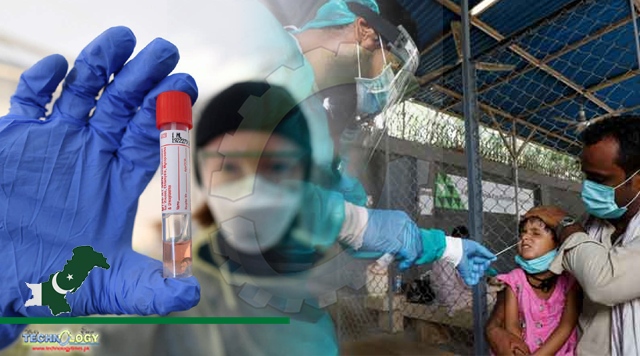Punjab is facing a shortage of coronavirus test kits, with the provincial government reducing the number of tests for the infection over the past few days.

According to a Geo News report, complaints of shortage of coronavirus test kits have been received across Punjab, including Lahore.
As per data provided by the government, Punjab conducted 18,962 tests on April 29, 18,962 on April 30, 16,846 on May 1, 16,307 on May 2, 14,137 on May 3 and 16,844 on May 4.
Responding to queries, a spokesperson of the Punjab Health Department said the number of coronavirus tests have decreased due to a shortage in the testing kits, adding that it has yet not received the new supply of the kits since a week.
“Tests of coronavirus patients admitted in government hospitals has also been affected,” the official said.
4,113 new cases reported in Pakistan
Pakistan reported 4,113 new coronavirus infections, raising the total case tally to 841,636 across the country.
According to the official data provided by National Command and Operation Centre (NCOC), the positivity ratio in Pakistan stands at 9.17% as of today whereas the number of active cases is reported at 84,480.
With 119 new fatalities, the country’s death toll stands at 18,590. Most deaths in the country were reported in Punjab followed by Sindh and Khyber Pakhtunkhwa.
In addition, nationwide recoveries were recorded at 738,727.
Punjab remains the worst-hit province by the pandemic both in terms of cases reported as well as deaths followed by Sindh, Khyber Pakhtunkhwa, and Balochistan.
So far, 310616 coronavirus cases have been confirmed in Punjab, 287643 in Sindh, 121099 in Khyber Pakhtunkhwa, 22776, in Balochistan, 76696 in Islamabad, 17,397 in Azad Kashmir, and 5341 in Gilgit-Baltistan.
Furthermore, 8741 individuals have lost their lives to the virus in Punjab, 4687 in Sindh, 3466 in KP, 239 in Balochistan, 698 in Islamabad, 491 in Azad Kashmir, and 107 in GB.
Originally published at Geo news